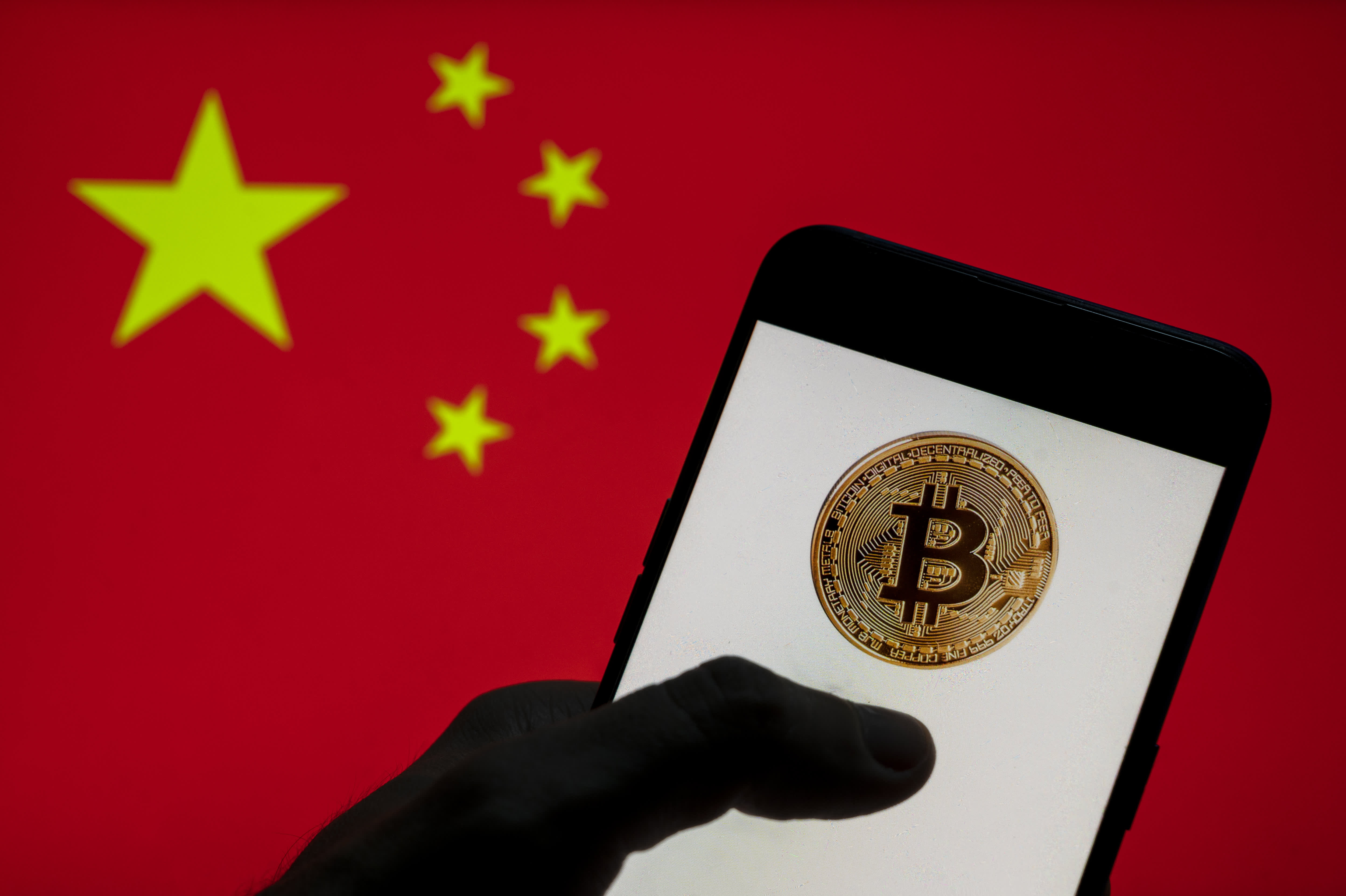
BOAO, China — China’s central bank is now calling bitcoin an “investment alternative” — marking a significant shift in Beijing’s tone after a crackdown on cryptocurrency issuance and trading nearly four years ago.
Industry insiders called the comments “progressive” and are watching closely for any regulatory changes made by the People’s Bank of China (PBOC).
“We regard Bitcoin and stablecoin as crypto assets … These are investment alternatives,” Li Bo, deputy governor of the PBOC, said on Sunday during a panel hosted by CNBC at the Boao Forum for Asia.
“They are not currency per se. And so the main role we see for crypto assets going forward, the main role is investment alternative.”
Bitcoin was up around 2% at 12:25 p.m. Beijing time at over $57,134.04, according to Coindesk data.
In this photo illustration, the Bitcoin logo is seen on a mobile device with People’s Republic of China flag in the background. (Photo Illustration by t/SOPA Images/LightRocket via Getty Images)
Budrul Chukrut | SOPA Images | LightRocket | Getty Images
China was once one of the world’s largest buyers of bitcoin.
But in 2017, China banned so-called initial coin offerings (ICOs), a way to raise money for crypto companies by issuing digital tokens. That same year, authorities shut down local cryptocurrency exchanges. The moves were prompted by concerns about financial stability.
As investment alternatives, “many countries, including China, are still looking into it and thinking about what kind of regulatory requirements. Maybe minimal, but we need to have some kind of regulatory requirement to prevent … the speculation of such assets to create any serious financial stability risks,” Li said.
He added that the central bank will keep its current regulations on cryptocurrencies.
Li’s latest comments highlight a potential shift in tone from the PBOC.
Flex Yang, CEO and founder of Babel Finance, called the comments “progressive” in an interview with CNBC on Monday. Babel Finance is a crypto financial services company.
“I think it is quite significant and is definitely different to their previous statements or positions on public cryptocurrencies,” Vijay Ayyar, head of business development at cryptocurrency exchange Luno, told CNBC by email.
Bitcoin appears to have become more mainstream in the financial world and has gained interest from institutional investors. Major corporations such as Tesla and Square in the U.S. have purchased large sums of bitcoin. The price of bitcoin is up 95% this year and last week, the cryptocurrency hit a record high above $64,000.
That all-time high coincided with the direct listing of cryptocurrency exchange Coinbase, which one investor called a “watershed” moment for the industry.
“Governments are realizing that it is a viable and established, yet growing, asset class and need to regulate it. China regulating crypto would be another massive boost to the industry in China and globally,” Ayyar said, talking about the motivation behind the PBOC’s shift in tone.
China is working on its own digital currency called the digital yuan. It is not a cryptocurrency and it is different to bitcoin. It will be issued by the PBOC. The aim is to replace cash and coins in circulation.
China has been carrying out a number of tests with the digital currency in major cities and Li said that the central bank could trial the digital yuan with foreign visitors at the 2022 Beijing Winter Olympics.




















